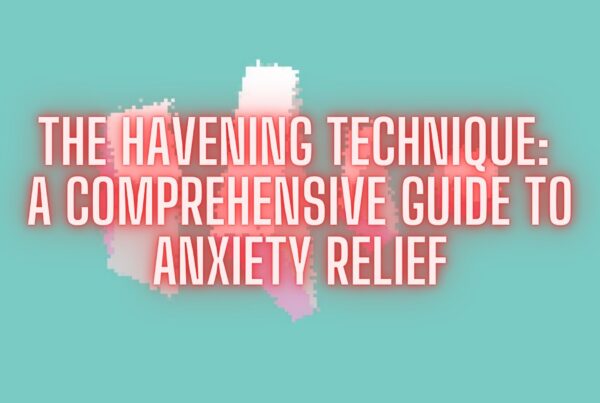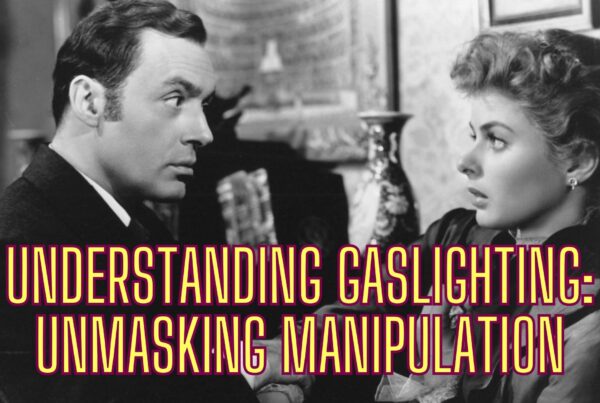Recognizing Trauma-Bonded Relationships
Understanding Trauma-Bonded Relationships
When it comes to relationships, few things are as complex and challenging as recognizing trauma-bonded relationships. These relationships are characterized by a strong emotional connection formed through shared experiences of trauma or adversity. These bonds, while seemingly unbreakable, but can be detrimental to the well-being of those involved.
Trauma-bonded relationships often involve a cycle of abuse, where one person endures mistreatment but feels unable to leave due to the intense emotional attachment. Recognizing trauma-bonded relationships is the first step towards healing and recovery, allowing individuals to break free from the cycle and build healthier connections.
The Cycle of Abuse and Manipulation
Within trauma-bonded relationships, a cycle of abuse and manipulation is commonly observed. One partner may exert control and dominance, using tactics such as gaslighting, emotional manipulation, and isolation to maintain power. The victim, despite experiencing pain and distress, remains attached due to the emotional bond formed through shared trauma.
Recognizing the signs of abuse and manipulation is crucial in identifying trauma-bonded relationships. By understanding the dynamics at play, individuals can begin to assess their situation and seek the support and resources needed to break free from the bond and prioritize their well-being.
The Role of Fear and Dependency
Fear and dependency play significant roles in sustaining trauma-bonded relationships. The fear of retaliation, abandonment, or further harm can keep individuals trapped in the relationship, feeling helpless and unable to escape. Dependency, whether emotional, financial, or physical, further complicates the situation, making it challenging to envision a life outside the relationship.
Addressing these fears and dependencies is essential in the process of recognizing trauma-bonded relationships and working towards recovery. By acknowledging the barriers to leaving and seeking support, individuals can empower themselves to make informed decisions and take steps towards healing and independence.
The Impact on Mental and Emotional Well-Being
The toll of trauma-bonded relationships on mental and emotional well-being cannot be understated. Individuals in such relationships often experience anxiety, depression, low self-esteem, and a sense of hopelessness. The constant stress and emotional turmoil can lead to physical health issues, further exacerbating the challenges faced.
Prioritizing mental and emotional well-being is vital in recognizing trauma-bonded relationships and breaking free from their grasp. Seeking therapy, counseling, and support groups can provide a safe space to explore feelings, gain insights, and develop coping strategies to navigate the complexities of the relationship.
The Importance of Support and Resources
Recognizing trauma-bonded relationships is a journey that requires support and resources. Friends, family, therapists, and support organizations can offer guidance, encouragement, and a listening ear, helping individuals navigate the challenges and uncertainties associated with leaving a trauma-bonded relationship.
Accessing resources such as hotlines, shelters, and legal assistance can provide practical support and safety, empowering individuals to take control of their lives and make decisions that prioritize their well-being. Building a support network and utilizing available resources are essential steps in the journey towards healing and recovery.
The Path to Healing and Recovery
Healing and recovery from trauma-bonded relationships are possible, but it requires time, effort, and self-compassion. Recognizing the relationship for what it is and acknowledging the impact on one’s well-being are the first steps towards healing. Seeking professional help, establishing boundaries, and focusing on self-care are crucial components of the recovery process.
The path to healing may be fraught with challenges and setbacks, but with perseverance and support, individuals can rebuild their lives and form healthier, more fulfilling relationships. Recognizing trauma-bonded relationships is not the end of the journey, but rather the beginning of a new chapter of self-discovery, growth, and empowerment.
Release Hypnosis Melbourne Hypnotherapy
Since 2015, Lawrence Akers has been working under the name Release Hypnosis offering Hypnotherapy and ACT based work to the people of Melbourne or an online service. Based on St Kilda Rd, Release Hypnosis is an easy and convenient location to get to and accessible by the ANZAC station train and tram stop. Release Hypnosis can help with a wide range of presenting issues, and I offer a free 30 minute no obligation discovery call for those who are unsure if hypnotherapy is the right way forward for them.
Book Your FREE 30 Minute Consultation With Release Hypnosis NOW!
You may also like to read:
Discovering Purpose and Values: A Path to Mental Well-being
Can’t Visualise in Hypnosis? Here’s What You Can Do Instead.
Dealing with Financial Stress and Crisis: Finding Peace Amid Turbulence
What Is The Success Rate of Hypnosis?








